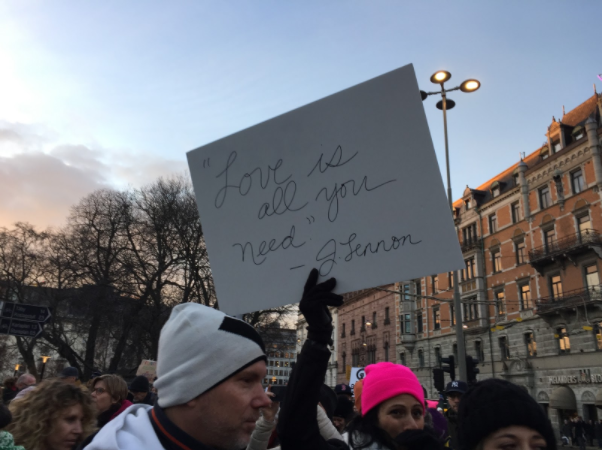Marching for Women
February 7, 2017
On January 21, 2017, directly following President Trump’s inauguration, 4.8 million people worldwide protested in the 673 women’s marches that took place. The aim of the marches was to protect legislation regarding human rights, women’s rights, immigration reform, healthcare reform, environmental protection, LGBTQIA+ rights, racial equality, freedom of religion, and workers’ rights. Additionally, many of the rallies were aimed at President Trump, who a majority of the marchers believe to be misogynistic or otherwise reprehensible.
The biggest march, of an estimated 500,000 attendants, was held in Washington D.C. In fact, it now holds record for the largest single-day demonstration in U.S. history. Apart from the 408 marches that took place in the U.S., 168 international marches took place in 81 different countries.
In Stockholm, thousands marched in unity from Norrmalmstorg to the U.S. embassy. Signs were held and chants were sung, all with the same underlying message: anger towards the new presidency and concern for the human rights and well-being of those affected. Most notably, people chanted “build bridges, not walls”, which has since become popular on a global level. The protesters in Stockholm were overwhelmingly concerned with reproductive rights (i.e. access to abortions and contraception) and the threats by the Trump Administration to defund Planned Parenthood. As a result, many of the signs read “I stand with Planned Parenthood” or “My body, my rights”.
Although those who protested in Stockholm, and around the world are afraid of what may happen in the upcoming years, fear did not shine through at these marches. Instead, millions marched together- radiating messages of hope and strength in knowing that they did not stand alone. This election and the events leading up to it, as devastating as they may be to some, evoked something in the people around us. They served as a call to action, a reminder to use democracy to our advantage and a reminder that there is power in numbers. Above all, it is a reminder to remain strong in your values and beliefs in this time of political and social turmoil.






